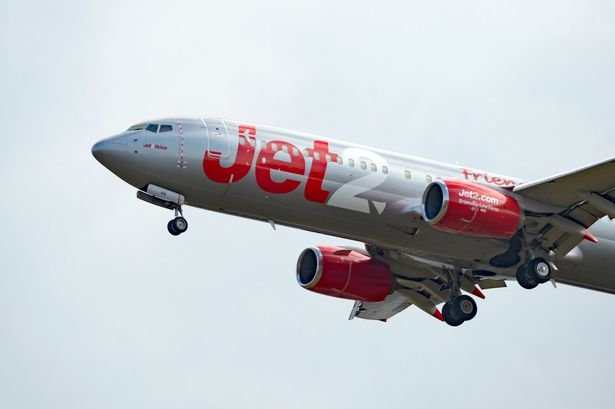The Jet2 passengers said they were told it was for “operational reasons”
UK tourists flying back from Majorca have shared how they were stuck in the airport for 20 hours due to “operational reasons.”
Passengers booked onto the Jet2 11.35am flight on July 21 from Palma Airport to Belfast were allegedly sent to board their flight as travellers would usually expect, before they were told of a delay.
At first, the airline reportedly told flyers this would be a few hours, however, shortly after, holidaymakers claimed the journey was pushed back 12 hours, with the plane estimated to take off at around midnight that day.
But, in an unexpected turn of events, passengers described how they were then informed the flight would not be taking off at all at this point.
READ MORE: Brit mum blasted after claiming sunbeds for ‘big family’ before going on outing
The airline ensured travellers were allocated a hotel room for the night, but some shared their concerns after it was alleged this process took around three hours.
Due to this, passengers claimed they had been waiting in the airport for 20 hours before they were shipped to temporary accommodation for the night.
A woman due to board the flight, who wished to remain anonymous, told BelfastLive of the “horrendous” experience: “We have always thought Jet2 were an excellent company, but the communication has just been awful.
“I have three young children, and there were a lot of other children getting on that flight. They had a few nappies, but there was no ready-made milk left for any of the babies, and they had power but couldn’t provide us with boiling water. When we went to get that, you were charged for it in the cafes.
“They sent out information to the passengers before their own staff to tell us the flight was delayed by 12 hours. The staff would give us no information, they said the window wiper was broken on the plane, and apparently the wrong replacement part was sent.
READ MORE: UK tourists face France rule change as locals demand ‘explanation’ on their behalf
“I was on the 24/7 helpline constantly, and they couldn’t give us any information. They kept telling us our flight was going to go at 12.20am. Between 12.30am and 1am, they told us the flight wasn’t happening.”
She explained how the hotel allocation process had worked the day after the incident, alleging: “We all had to go down and get our luggage then we stood for around three hours while they tried to get us hotels. We were getting our hotels at around 4am, after having been in the airport from about 8am the day before.
“I asked if there would be a cot in the hotel for my baby and they said there would be. I Googled the place before we left and it was adults only – they were sending me there with my three young children.
“They booked us in to a different hotel, and didn’t tell the driver we were going to this new hotel. The situation has been horrendous.
“Our flight is meant to go at 5.35pm today, and I have been on the phone with the helpline all day and nobody can guarantee it will happen.”
A spokesperson for Jet2 told the publication: “Flight LS362 from Palma to Belfast International has been delayed due to operational reasons. Despite our best efforts to get customers back to the UK yesterday, the flight had to night stop at Palma Airport and our teams have been working very hard to look after everyone including arranging hotel accommodation and refreshments.
“We have continued to communicate with customers throughout and will be flying customers back to Belfast today.
“We understand the inconvenience that this may have caused, and we would like to apologise to customers affected by this unforeseen delay.”


























You must be logged in to post a comment Login